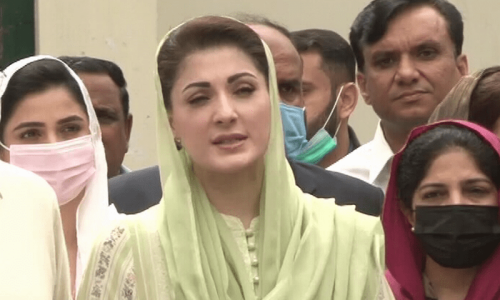IF the man on the street frequently uses the word ‘hapless’ to describe his own condition, there is no dearth of reasons why. In a country where not even the most basic rights and comforts are a given, this is what the majority of citizens views as a certainty: resources will only grow scarcer, and life tougher. Consider, for example, the crippling shortages the citizenry has faced this year. The summer saw endless hours of the suspension of electricity. Such was the level of frustration that protests, often violent, became routine in this context in both the urban and rural areas. Dwindling reserves of natural gas meant a slowdown in industry, again affecting jobs and incomes, and long queues of vehicles waiting to fill up with CNG. Come winter, and the problems have intensified. Across the country, increased usage of gas coupled with low pressure means that many households are not getting enough gas to even fire up their stoves, let alone keep warm. Meanwhile, on Monday the government announced that countrywide load-shedding will increase; in some areas it might be up to eight to 10 hours a day. This, it said, was because of the diversion of gas to the textile industry and an increased gap between electricity demand and supply as a result of the closure of canals.
The statement issued by the Ministry of Water and Power noted that “inconvenience to be caused to people due to load-shedding is regretted”. That would be enough, perhaps, if the issue under discussion was some small bother, a minor hassle for a few people to contend with. Given that this is far from the case, people may well find themselves wondering whether the state is, step by step, abandoning its responsibilities towards them and leaving them to fend for themselves. In the domestic sector, load-shedding affects ordinary people the most; the generators of the affluent roar into life minutes after the power lines go dead. The same goes for disruptions in domestic gas supply, which cut right to the heart of the normal functioning of households. Surely the state can legitimately be expected to do better than the equivalent of throwing up its hands in despair, citing shortages.












































